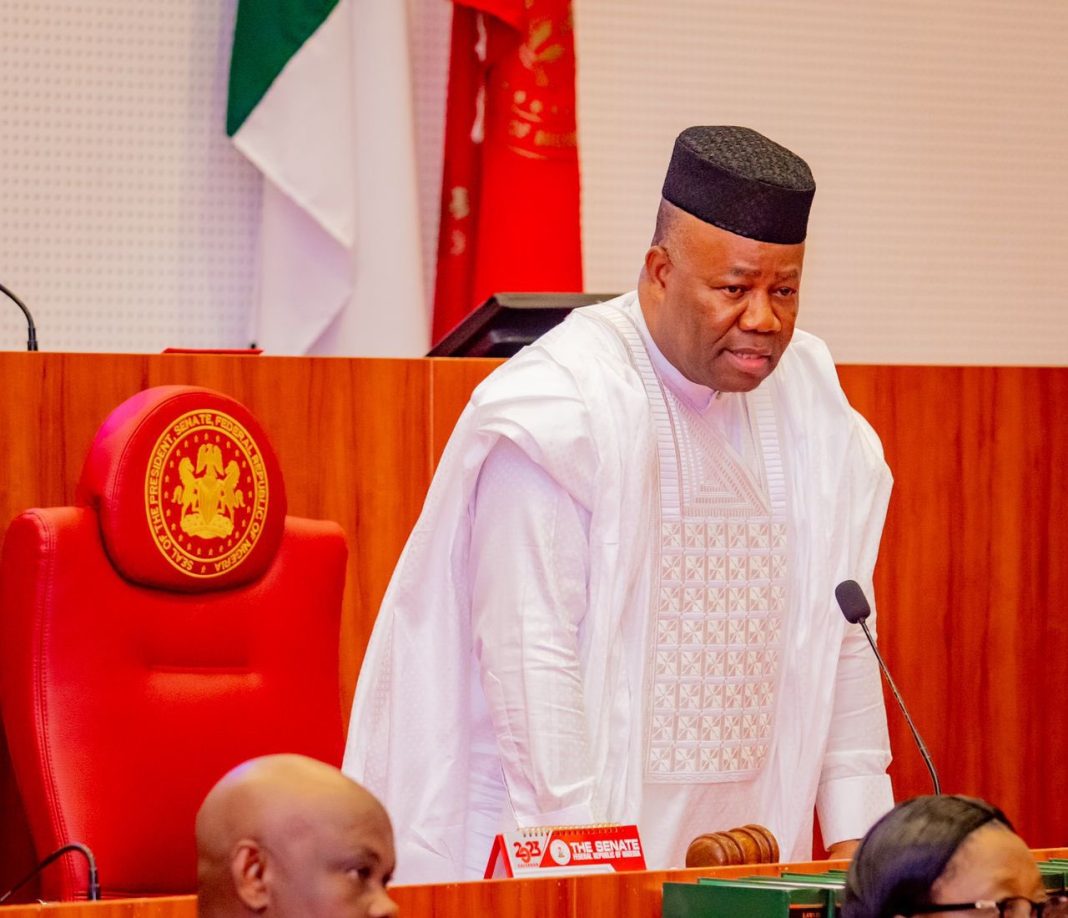ABUJA, Nigeria—The federal government and key stakeholders have strongly opposed a proposed bill to establish the Nigeria Mines Ranger Service, NMRS, to combat illegal mining and other crimes in Nigeria’s mining sector.
Representatives from the Ministries of Solid Minerals, Justice, Interior, and various security agencies cite concerns of redundancy and overlap and argue that the mandate of the NMRS would duplicate the functions of the Nigerian Security and Civil Defence Corps, NSCDC.
The NMRS bill, sponsored by Senator Mohammed Onawo, envisions a specialised force to protect mining sites, enforce environmental standards, and respond to mining emergencies.
Senator Onawo’s proposal includes creating an emergency response unit specifically trained to address illegal mining and reduce the estimated $15.9 billion lost annually to such activities.
Arguments Against the NMRS
The Attorney General of the Federation, Lateef Fagbemi, represented by Patrick Eka Eoyan, highlighted the overlapping mandate of the NMRS with the NSCDC, which has authority under Section 3 of its establishment act to address various forms of economic sabotage, including mining-related offences.
“There is no need to create another body when existing agencies, if properly equipped and staffed, can address the issues,” Eoyan argued, calling for better support of the NSCDC to take on expanded mining responsibilities.
Dele Alake, Nigeria’s Minister of Solid Minerals, echoed these sentiments, advocating for a collaborative, multi-agency strategy instead of creating a new body.
Alake suggested that the Special Mines Surveillance Task Force (SMSTF) could be fortified with advanced technology, such as drones, to enhance its effectiveness in monitoring mining activities.
“Building on the SMSTF’s established structure and expanding its technical capabilities is a more viable approach than introducing another layer of bureaucracy,” he stated.
Assistant Director at the Ministry of Interior, Kiera Okafor, further supported strengthening existing agencies, particularly the NSCDC.
According to Okafor, with appropriate training, resourcing, and inter-agency cooperation, the current security forces could manage illegal mining efficiently.
She emphasised that duplicating responsibilities across multiple agencies would create “inefficiencies and redundancies” within Nigeria’s security apparatus.
Focus on Multi-Agency Coordination
The opposition to the NMRS bill underscores a broad consensus among government ministries and agencies on using existing structures more effectively.
Stakeholders argue that improved coordination between security agencies and investment in surveillance technology are more practical solutions to Nigeria’s illegal mining crisis.
With better funding and strategic collaboration, existing entities like the NSCDC and SMSTF could tackle mining crimes without the complications of establishing a new agency.
Dr. Alake emphasised a preference for multi-agency synergy, which he believes could streamline efforts and reduce operational costs, allowing the government to address illegal mining more sustainably.
“Our priority is to empower and streamline our current institutions, not add complexity,” he remarked, recommending enhanced intelligence-sharing and surveillance across agencies.
Next Steps for the NMRS Bill
The opposition to the NMRS bill signals challenges for Senator Onawo’s proposal as it moves through Nigeria’s legislative process.
However, the senator has argued that a dedicated service is essential for a mining sector that contributes significantly to Nigeria’s revenue but remains plagued by illegal operations and environmental challenges.
Whether the NMRS is established or not, stakeholders agree that addressing the illegal mining crisis is critical.







